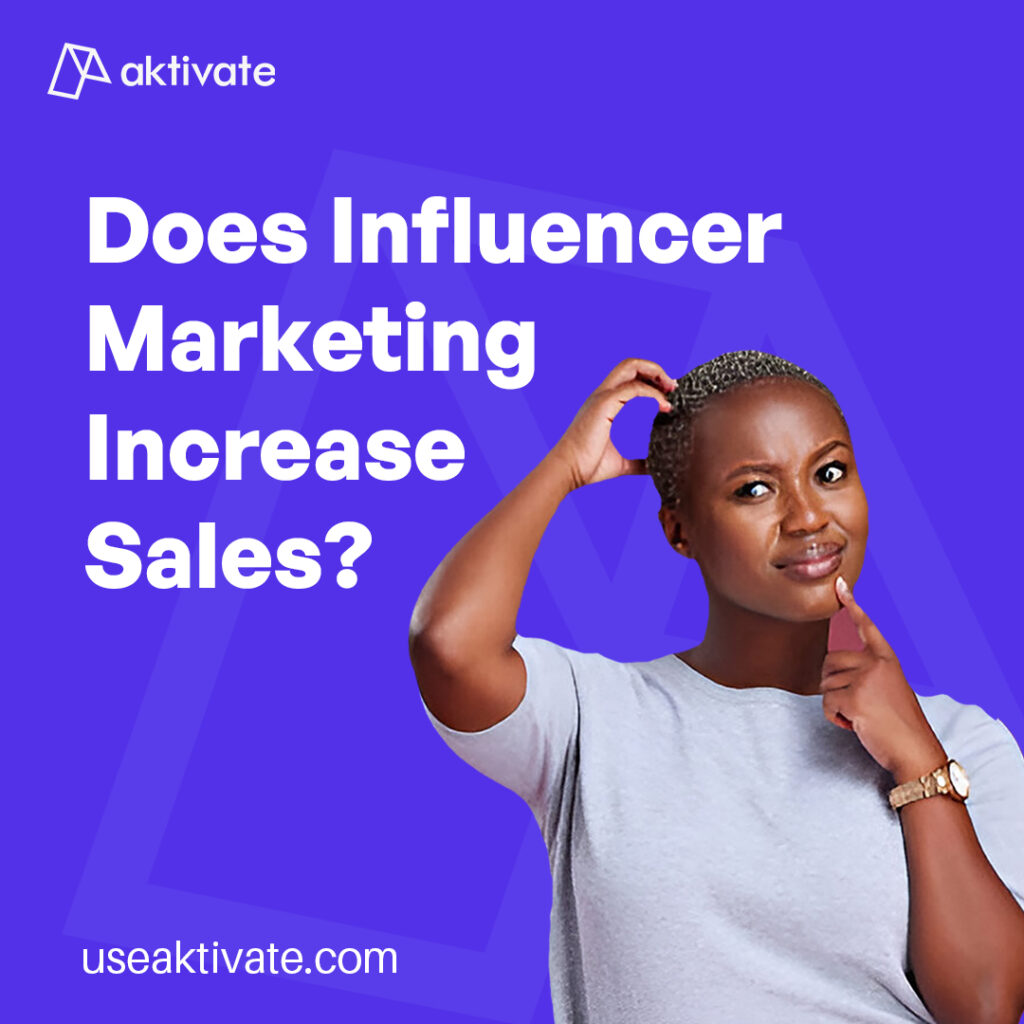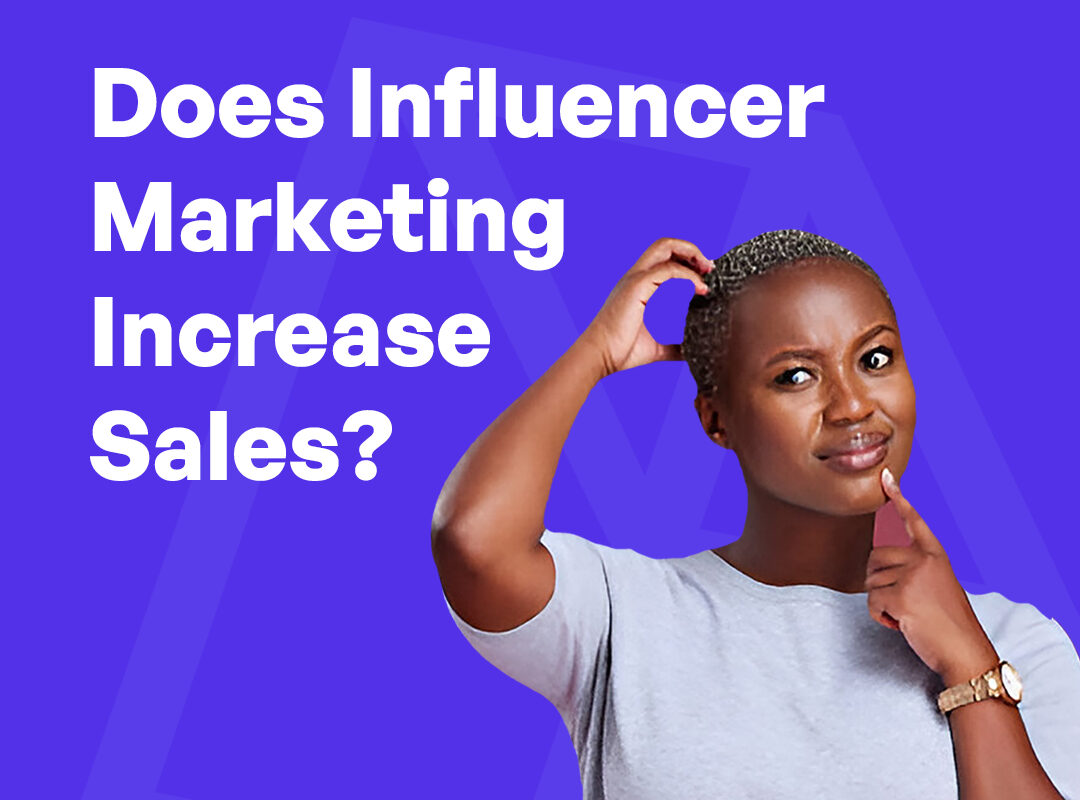In today’s digital age, influencer marketing is no longer just a trend. It has become an essential part of many brands’ strategies. Companies invest millions in collaborations with influencers, hoping to boost sales and build brand loyalty. However, the big question is: does influencer marketing increase sales, or is it just about gaining followers and likes? The answer lies in understanding how influencer marketing works and why it can be a powerful tool for driving revenue.

Does influencer marketing increase sales? Discover how partnering with influencers can boost brand visibility, customer engagement, and revenue growth.
Understanding Influencer Marketing
Influencer marketing is a strategy where brands collaborate with individuals who have a strong online presence. These influencers promote products or services to their followers, often through social media platforms.
The strength of influencer marketing lies in trust. Influencers have built credibility with their audiences. Therefore, their recommendations often carry more weight than traditional advertisements.
The Link Between Influencer Marketing and Sales
The ultimate goal of any marketing strategy is to drive sales. Influencer marketing is no exception. Here’s how top brands use influencer marketing to boost revenue:
Building Brand Awareness
Influencers introduce your brand to their followers, many of whom may not have heard of it before. Increased visibility leads to higher interest in your products.
Driving Engagement
Influencers create content that resonates with their audience. As a result, their followers are more likely to engage with your brand.
Encouraging Purchase Decisions
Recommendations from trusted influencers can sway followers to make a purchase. For example, reviews or tutorials often showcase a product’s benefits in action.
Providing Social Proof
When consumers find influencers using a brand’s product, it creates a sense of trust. This social proof can reduce hesitation and encourage buyers to take action.
Real-Life Examples of Influencer Marketing Success
Influencer marketing campaigns have consistently shown positive results for brands. For instance:
- Daniel Wellington: The watch brand leveraged micro-influencers to showcase its stylish products, resulting in massive sales growth.
- Gymshark: Fitness influencers were pivotal in promoting their activewear, helping them build a billion-dollar business.
- Fenty Beauty: Collaborations with beauty influencers helped Rihanna’s brand generate $100 million in sales within the first month.
You can read this article for more details on how top brands use influencer marketing. These success stories highlight the effectiveness of influencer marketing in driving sales.
Measuring Sales Impact
To determine whether influencer marketing increases sales, you need to measure its performance. Here are some key metrics to track:
Conversion Rates
Monitor how many people purchase your product after interacting with an influencer’s content.

Affiliate Links and Discount Codes
Use unique links or promo codes to track direct sales driven by influencers.
Website Traffic
Analyze how much traffic influencers generate for your website and how many visitors convert into customers.
Customer Acquisition Cost (CAC)
Compare the cost of acquiring customers through influencer marketing versus other channels to assess its efficiency.
Return on Investment (ROI)
Calculate the revenue generated compared to the amount spent on influencer campaigns.
Factors That Influence Sales Through Influencer Marketing
While influencer marketing can increase sales, its success depends on several factors:
Choosing the Right Influencer
Collaborate with influencers whose audience aligns with your target market. Relevance is more important than follower count. In addition, fostering a good influencer relationship helps to ensure a long-term mutually beneficial partnership.
Authentic Content
Influencers who create genuine and relatable content tend to drive higher engagement and sales. Avoid overly promotional posts.
Clear Call to Action
Include a direct and compelling call to action in the campaign. For example, “Shop now” or “Use this discount code.”
Campaign Goals
Define clear objectives for your influencer campaign. Whether it’s brand awareness or sales, alignment ensures better results. With clearly defined objectives and an aligned campaign, you’re more likely to smash your campaign goals.
Common Challenges in Measuring Sales Impact
Although influencer marketing can boost sales, measuring its direct impact can be tricky. Challenges include:
- Attribution Issues: Consumers may see an influencer’s post but purchase later through another channel.
- Multiple Influencers in One Campaign: Identifying which influencer drove the most sales can be difficult.
- Long Sales Cycles: High-value products may require more time for consumers to make a purchase decision.
To overcome these challenges, use advanced tracking tools and clear reporting systems.
Does Influencer Marketing Work for Every Brand?
The success of influencer marketing varies depending on the industry, product type, and audience. While it’s highly effective for lifestyle brands, it may not be as impactful for niche industries with limited online audiences.
However, with the perfect influencer marketing strategy, even smaller brands can benefit. For instance, partnering with micro-influencers often delivers better engagement rates and higher ROI for niche businesses.
Tips for Running a Successful Influencer Marketing Campaign
Start Small
Test the waters with a small group of influencers before scaling up. This helps you refine your strategy.
Prioritize Quality Over Quantity
Focus on engaging content and meaningful partnerships rather than working with too many influencers.
Be Transparent
Ensure influencers disclose their collaborations to maintain trust with their followers.
Track and Optimize
Regularly analyze campaign performance and make adjustments to improve future results. This starts with optimal timing for each influencer campaign and effective feedback strategies.
Final Thoughts
So, does influencer marketing increase sales? The answer is yes—when done correctly. By building trust, creating engaging content, and leveraging the power of social proof, influencer marketing can drive significant revenue growth.
However, success depends on choosing the right influencers, setting clear goals, and continuously optimizing your campaigns.
If you’re ready to harness the power of influencer marketing, sign up on Aktivate today. Discover the perfect influencers for your brand and start building campaigns that deliver real results.





